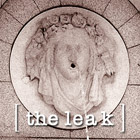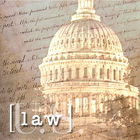
|
IS PRESS FREEDOM UNDER ATTACK BY SPECIAL PROSECUTOR? 11 July 2005 Special Prosecutor Patrick Fitzgerald has imprisoned New York Times reporter Judith Miller for refusing to answer questions after he subpoenaed her testimony in his investigation of the leaking of a CIA spy's name. The Economist magazine criticizes the move on the one hand for its over-reaching:
The article ends with a warning to serious journalists to "beware". Clearly something has shifted in the media climate, and in the political climate, where the rule of law, in a nation where the Constitution provides an absolute right to publish, has come to mean the government may dictate what news sources are and are not permissible, where press freedom runs afoul of particular prosecutions. Another criticism of Fitzgerald's move is that it calls into question some of the most basic rules of the American system for sustaining the rule of law. Essentially, the prosecutor should be as serious about the rights of those involved in the case as he would be in pursuing what appear to be easy means of obtaining information. Also cited by the Economist and my many other sources is the problem of Robert Novak's involvement in the case. Novak was the journalist who actually published the name of the undercover agent, thus revealing her identity as a CIA spy and revealing the underlying crime of the government's leaking her name. He has enjoyed supreme privacy throughout the prosecution, as no one has yet been able to publish an account of what his dealings with Fitzgerald's office may have been. He clearly knows who was responsible for leaking the name, but there is not yet any confirmation in the public domain of whether he was subpoenaed, whether he testified or whether he faced any of the persecution brought to bear on Miller and Matthew Cooper of Time magazine. Miller's jailing therefore raises even more doubts about the process: if her freedom to protect confidential sources is not absolute, then where does Novak's protection against prosecution for involvement in outing an undercover agent start and end? The uneven nature of the prosecution's methods leave open the very real possibility that journalists like Novak may be considered to be directly involved in the crime, as their work may not serve the public interest first, but rather could have been intended specifically as a means of aiding the source. Essentially, this central doubt means there remains like a white elephant in the courthouse, the question of whether Novak's story was honest journalism or an act of propaganda, whether we worked as a member of "the Fourth Estate" or whether he was doing the dirty work of the Executive branch. Fitzgerald's methods have confused not only the definition of the rule of law in the US, but also the nature and the purpose of his investigation. [For more: Economist]
BACKGROUND: New York Times reporter Judith Miller has been jailed by a Special Prosecutor investigating the leak by White House officials of the identity of an undercover CIA agent to the press. She could face up to four months in prison, for violating a court order which she believes runs contrary to the constitutionally protected press freedoms. Investigating who in the White House leaked the name of undercover CIA agent Valerie Plame to the press in the summer of 2003, Special Prosecutor Patrick Fitzgerald had demanded full testimony by reporters Judith Miller (of The New York Times) and Matthew Cooper (of TIME) regarding the identity of the sources they used to write stories about the controversy. [Full Story] |
||||||||||
|
|||||||||||



